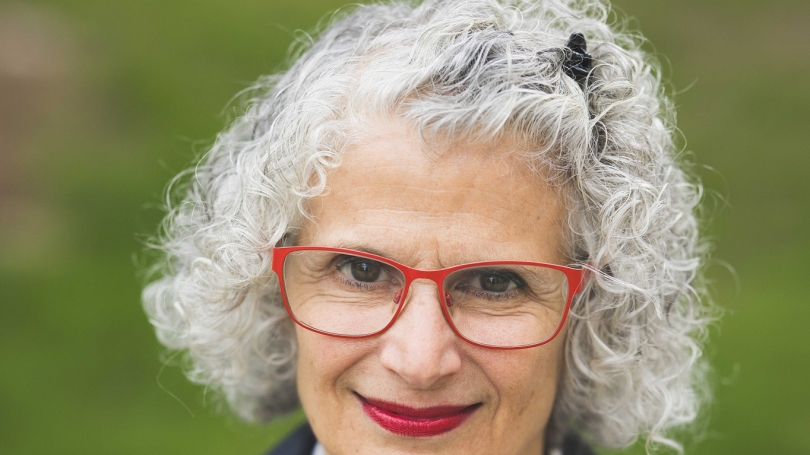
Menu
- Undergraduate
- Graduate
- News & Events
- People
Back to Top Nav
Back to Top Nav
Back to Top Nav
It's hard for me to believe, but on July 1, I'll be officially retired from Dartmouth College. I switch from "active professor" to "professor emerita." I arrived in the Upper Valley in June 1994, so there it is: closing the circle on thirty years.
I have loved teaching itself at least since I was 12 when I started to tutor a good friend's younger sister—in math of all things. I have deeply loved teaching here at Dartmouth College and in our programs abroad in Germany. I've had fabulous, motivated, intelligent and creative students. But I have also loved the collaboration with and the learning from colleagues. The professors of the German Studies Department have been especially collegial, not only in hammering out curricula and what's best for our students, but also in sharing ideas.
So, as I thought about retirement and specifically about some kind of public marking of my retirement, I realized I wanted it to feature my peers doing what they do so well: report on their research. And that's what happened. On May 17, a busy day at our College, some of us were able to get together in the beautiful Wren Room and listen to six short and marvelous presentations of topics examining ancient Greek art, lives upended by World War Two or treatment of Native Americans, racially-influenced interactions between doctors and cancer patients, the possible role that understandings of postmemory have played in the current processing of the war in Gaza, and yes, the unrest, demonstrations, and arrests that had recently taken place on our very campus.
My own closing remarks asked: what is a scholarly life? I started my answer by recalling how a historian PhD candidate who was a dear friend, Michael Jimenez, explained to me when I was still an undergraduate, that it's ridiculous that only the so-called scholar's name is on the title page of the dissertation or book, because there is no way that any scholarship is produced alone. Scores of archivists, librarians and other scholars allow us to produce so-called "new knowledge." Mike's point back then made a lot of sense to me and years in this profession have confirmed it: you don't do it alone.
I quoted Bakhtin, as I did for the epigraph to my tenure dossier, with his idea of
"words as the bridge thrown between myself and others." And I mentioned the linguist Emile Benveniste's insight that the personal pronouns "I" and "you" can trade places, something she, he or they can't do. I reminded us of the philosopher Martin Buber's insistence that to say "Du" (you), is to recognize the other's subjectivity. I'm not quite sure why I became so obsessed with pronouns and communication, but exploring how we connect through words, oral, written, performative has been the most enriching part of intellectual life for me. I have lectured, taught and published about it from many angles.
I found "we-ness" in abundance when I arrived at Dartmouth. Having been too long at that place down south on the Charles River, I was surprised, charmed, relieved, reassured, and encouraged by the lack of hierarchy I discovered at Dartmouth in 1994. Lack of hierarchy among the ranks of professors and teaching faculty. But also lack of hierarchy between staff and faculty. (It's hard to erase the hierarchy between students and their professors, but many of us try to diminish that too.)
I had fun reminiscing about some concrete examples of interaction between all ranks of professors, staff and students, including giving a paper at an academic conference with one of my undergraduates, Jenny Goransson, who, by the way, also gave me some important tips toward my project on what I came to call Holocaust family memoirs and later paramemoirs.
So, in these perhaps final words I get to utter in a Dartmouth venue while I'm still an employee, I guess I want to remind us about connecting. To use another favorite quote from the literary sphere: "Only connect" (E.M. Foster's Howard's End).
We shouldn't be nostalgic about the Ivory Tower or this campus as some place separate from the real world. But it wouldn't be wrong to remember that "our community", that entity so cherished by German Studies Professor and dear friend, Susanne Zantop, that I still hear the phrase in her voice, is a place we all have to work for and keep building. Not to hide away. But to grow. In peace. To work for peace. Even when we don't agree on all matters.